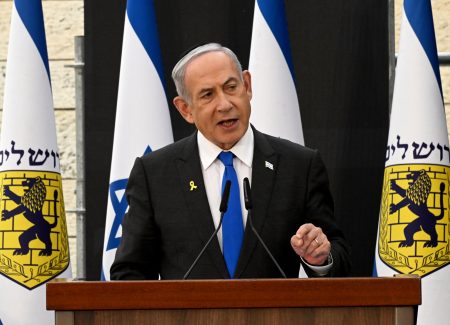In a recent interview with The Associated Press, a senior leader within Hamas’ Politburo, Khalil al-Hayya, stated that Hamas would be willing to lay down its arms and become a strictly political group if Palestinians were able to establish an independent state on the 1967 borders in the West Bank and Gaza Strip, along with the right of return for Palestinian refugees. This statement comes amid ongoing conflict and violence between Hamas and Israel. Hamas has historically been inconsistent in its political positions, with some members showing a willingness to accept a two-state solution while others reject the idea of coexisting with Israel. This inconsistency has led to internal conflicts within the group for decades.
Throughout its history, Hamas has pursued a strategy of armed resistance against Israel, rejecting opportunities for peace and stability in favor of perpetual conflict. The group has attacked and undermined efforts towards a two-state solution, viewing compromise as a betrayal of Palestinian rights. This approach has led to decades of violence, destruction, and missed opportunities for peace and independence. Despite this history, Hamas is now facing tactical and operational defeat, prompting some members to consider accepting a two-state solution on the 1967 borders.
As a Palestinian who has experienced the impact of Hamas’s actions firsthand, the recent shift in the group’s position is met with anger and skepticism. Many Palestinians have suffered due to the group’s refusal to engage in meaningful dialogue and pursuit of violent tactics. However, amidst the ongoing impasse in the Israel-Palestine conflict, there are calls to engage with Hamas in order to explore possibilities for renouncing violence and accepting coexistence with Israel. While Hamas’s willingness to reconsider its approach is seen as a positive development, it also highlights the need for a rational and pragmatic approach to resolving the conflict.
The past 30 years of Hamas’s actions have hindered progress towards Palestinian independence and peace with Israel, but there is hope that the group’s recent willingness to consider a two-state solution could lead to positive outcomes. The pro-Palestine movement, particularly among young activists, is urged to reconsider maximalist approaches in favor of pragmatic solutions that prioritize the well-being and rights of the Palestinian people. As discussions around coexistence and peace evolve, it is crucial to acknowledge the complexities of the conflict and work towards sustainable solutions that ensure the survival and rights of all involved.
In conclusion, the evolving position of Hamas towards a two-state solution on the 1967 borders presents an opportunity for progress in the Israel-Palestine conflict. While there are challenges and uncertainties ahead, engaging with Hamas and promoting constructive dialogue is essential to finding common ground and achieving long-term peace and stability in the region. As the international community continues to grapple with the complexities of the conflict, a reevaluation of strategies and a commitment to pragmatic solutions are necessary to overcome decades of division and violence.














